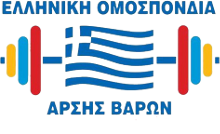History the WeightLifting
Although weightlifting is considered to be the main sport of strength and vigour, it was not included in the programme of the Olympic Games in ancient years. Since that time, weightlifting became a way of demonstrating physical strength. Greeks treated top weightlifters as half-gods. Milon of Kroton, whose athletic achievements Pausanias extols in his work “Iliaka”, is a perfect example. He was not the strongest though. Elianos records that Titormos of Etolia carried a huge rock, which Milon could barely lift. When he saw Titormos carrying the rock, Milon exclaimed: “Zeus, have you sent us a second Hercules?”.
In an Egyptian royal tomb, people are depicted lifting bags loaded with sand. Nevertheless, there is no written evidence suggesting an athletic competition.
On the other hand, in Greece, at Pelopio of Ilia, a site near Ancient Olympia, a 143,5kg stone was found dating back to the 6th century BC, where one could easily read the inscription: “Vyvon lifted me with one hand over his head”! Not only the inscription but also the fact that the stone was carved so that the athlete could grab it, suggest that Vyvon won a weightlifting competition.
Although French historian Raymond Vanker once wrote that modern athletes could lift heavier weights, it remains an amazing athletic feat given the fact that no athlete in our days is strong enough to lift a 143,5kg stone with one hand.
Vyvon’s stone is exhibited at the museum of Ancient Olympia.
An achievement almost beyond physical power is recorded on a huge 480kg stone, found in Thira (Santorini). According to the inscription, Eumastas, son of Kritovoulos, lifted that stone from the ground. The assumption that Eumastas probably used both hands to lift 480kg few centimeters off the ground does not lessen his achievement.
The most important proof that even though weightlifting was not included in major athletic games, every Greek city-state held its own weightlifting competitions (“domestic games”) can be found in Wurzburg Museum in Germany. A cup (dating back to 500 BC) similar to those that ancient Greeks, Athenians in particular, awarded to winners, presents a young man lifting two stones. This young man is considered to be the winner of a weightlifting competition.
It is therefore confirmed that weightlifting constituted an athletic event in ancient years. The attempt of ancient Greeks to combine strength with velocity and flexibility was probably the main reason why they chose not to include it in the Olympic Games. Nevertheless, all athletes used to practice weightlifting as a training exercise.
As Filostratos once wrote: “Old gymnastics aimed to enhance physical strength. Athletes used to lift big weights in order to become stronger”.
